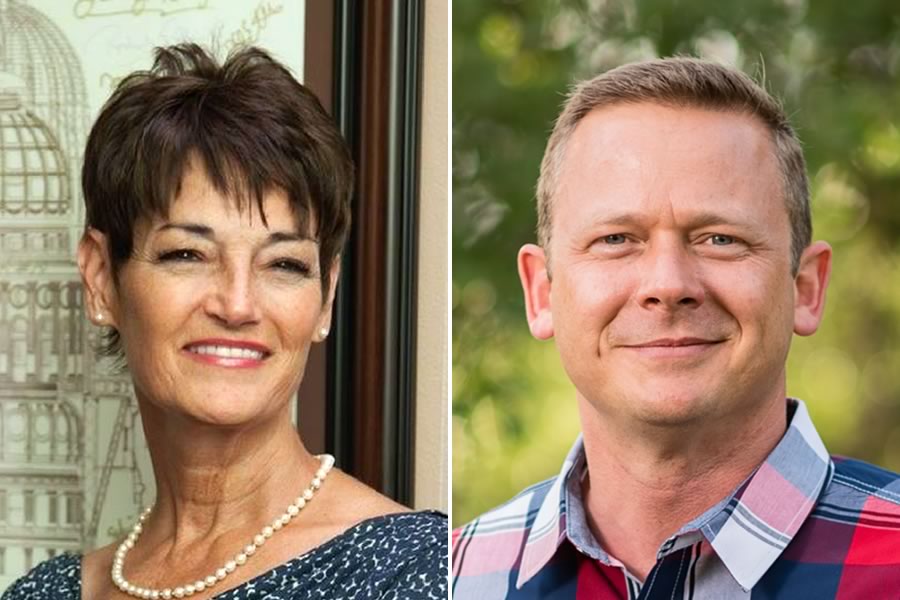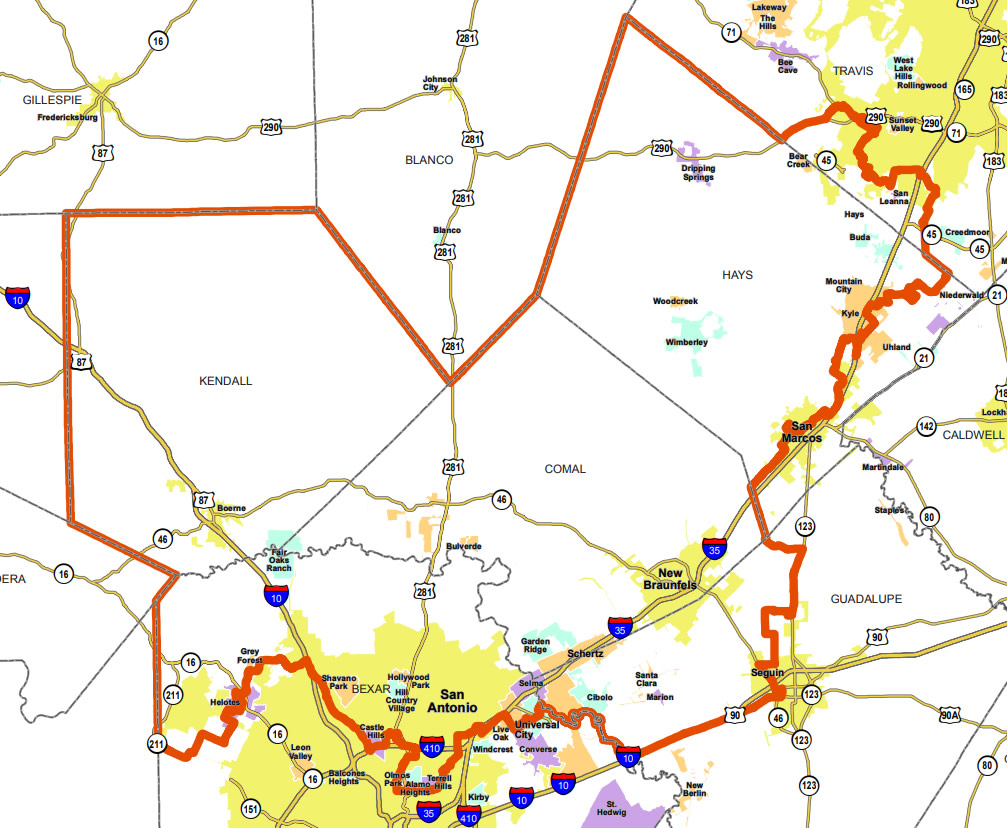Donna Campbell vs. Steven Kling (2018)
Excerpt published in October 28 New Braunfels Herald-Zeitung (subscription required)
We are encouraged by the recent interest Senator Donna Campbell has shown in the need to protect Hill Country residents and natural resources from the freewheeling aggregate industry. But we must give greater weight to the actions she has taken during her six years representing District 25.
Her voting record reveals that Dr. Campbell is often on the wrong side of legislation when it comes to the state’s natural resources and citizens’ rights on environmental issues. For example, in 2015, she voted for SB 709, making it even more difficult for individuals to contest TCEQ air quality and other permit applications. In 2017, she supported SB 1045, eliminating a required public notice period for certain air pollution permits. Dr. Campbell’s track record of siding with large polluters is not encouraging.
In an August 2017 letter, Senator Campbell wrote “that the process, conducted and overseen by the TCEQ, is the best way to assure that desired land use does not have a detrimental effect on the environment or health of nearby residents.” This statement is concerning in light of myriad violations, poor enforcement, TCEQ’s inability to sufficiently monitor pollution, and health issues arising in neighborhoods near existing aggregate plants. While we are optimistic about Dr. Campbell’s recent attentiveness to our cause, her reluctance to collaborate on development of real, meaningful solutions to the problems Hill Country residents face, and continued opposition to even a limited level of local control is disheartening.
In contrast, challenger Steven Kling has actively been involved in learning about our efforts, exploring possible solutions, communicating with officials, and attending public meetings. Mr. Kling cites water, rapid development, and community control as issues of importance. He supports common-sense regulations to rein in the over-aggressive quarry and concrete companies, and is not supported by corporate donors or lobbyists in the aggregate industry. Mr. Kling is a U.S. Army veteran and small businessman.
In the upcoming legislative session, we look forward to working with whomever represents District 25 on the aggregate-related issues that are critically important to Comal County and Hill Country citizens. But elections require us to make choices. And when it comes to protecting District 25 citizens against corporate polluters and defending the natural resources of Texas, Steven Kling is the better choice.

Candidate Questionnaire
Preserve Our Hill Country Environment sent a candidate questionnaire to both candidates in late August, then followed up with each candidate multiple times by email and phone. Responses from each candidate are shown below verbatim. As per instructions, responses have not been edited for spelling, punctuation, or grammatical errors. “No response received” is shown for any candidate who did not reply by the October 15 deadline.
Question 1. Texas requirements for aggregate mining (rock quarries) are very minimal compared to other states. For example, unlike Colorado and Wyoming, Texas has no requirements relating to quarry blasting, water usage, ore and product transport, or site reclamation. While the State of Texas currently regulates these areas for coal and uranium miners, aggregate miners are not required to follow similar rules. Would you support legislation that standardizes these rules and requires aggregate miners to meet the same standards that coal and uranium miners currently meet?
Campbell: No response received.
Kling: YES. There should be stricter regulations for any land use that involves mining of any sort and counties should be empowered to enact further restrictions as their citizens see fit.
Question 2. Aggregate companies own and are purchasing large tracts of agricultural and ranch land for quarry, cement, and asphalt operations, in many cases creating incompatible land uses, severely reducing the value of nearby homes and ranches, and threatening the health of surrounding residents. County governments have little authority when it comes to regulating incompatible land use in unincorporated areas. Would you support legislation to grant such authority to county governments to implement common sense land use rules and monitoring of aggregate plants at a local level, thereby fostering a reasonable and predictable approach to development that protects all property owners?
Campbell: No response received.
Kling: YES. Furthermore, Texas counties need additional authority to plan, zone and regulate use of commercially owned property. There should be legal distinctions between individual/family land ownership and commercial.
Question 3. The Texas Hill Country possesses 80 percent of all limestone quarried in Texas. The process for obtaining TCEQ air quality permits includes an option to grant these permits without giving citizens the opportunity to contest the permit application through the State Office of Administrative Hearing. Additionally, TCEQ has recently eliminated and shortened key public notification requirements for certain permits. What specifically will you do to fix the broken TCEQ permitting process and ensure that our natural resources such as air and water are adequately protected in the future?
Campbell: No response received.
Kling: State gov’t has gone entirely too far in favor of protecting profits of donors at the expense of our environment and the health, safety, quality of life and property values of the citizens it should protect. TCEQ has a dismal < 2% enforcement rate. I am in favor of restoring and strengthening notification requirements and requiring any citizen communiques to include statements by organizations registered in opposition be they citizen, environmental, regulatory or otherwise.
Question 4. Vulcan Construction Materials is a large, out-of-state quarry and cement plant operator. Westward Environmental provides consulting services to aggregate companies such as Vulcan. Texas Aggregates and Concrete Association (TACA) is a lobbying group representing Vulcan and other aggregate companies. Have you or your campaign ever received any monetary or in-kind contributions from Vulcan, Westward, or TACA?
Campbell: No response received.
Kling: NO. I never have and never will take contributions from corporations or corporate interest groups. Doing so is the easiest way to sow doubt among constituents about who their electeds are really representing in the state house.

Other Key Races
Preserve Our Hill Country Environment is a 501(c)(4) nonprofit organization formed to preserve, protect, and restore the land, water, air, wildlife, unique features, and quality of life in the Texas Hill Country from the aggressive and insufficiently regulated expansion of the aggregate industry.
Related News
State Representative, District 73 Voter Guide
October 8, 2020
Kyle Biedermann and Stephanie Phillips are candidates for State Representative, House District 73, in the November 2020 general election. Voter guide and candidate questionnaire responses.
State Representative, District 73 Voter Guide
October 19, 2018
Kyle Biedermann and Stephanie Phillips are candidates for State Representative, District 73, in the November 2018 general election. Voter guide and candidate questionnaire responses.
Comal County Commissioner, Precinct 2 Voter Guide
October 17, 2018
Scott Haag and Michael Zimmerman are candidates for Comal County Commissioner, Precinct 2, in the November 2018 general election. Voter guide and candidate questionnaire responses.